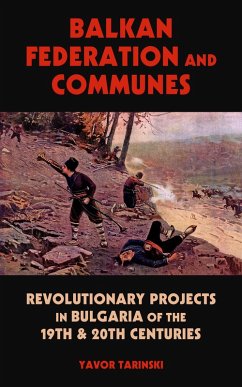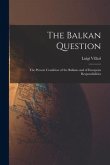How much does an unrealized past that was once a possible future agitate us? Today the Balkans seem to be dominated by nationalism, violence, and xenophobia—ills that were cultivated after the dissolution of the Ottoman Empire and the intervention of the Great Powers in the region. The peoples of the Balkans have since been squeezed into numerous small state entities, each promoting its own national idea. But this was not the only possible development. There were dynamic revolutionary movements fighting for united and federated Balkans, where the peoples would actively participate in the management of public affairs. The Balkan federation and the commune form emerged as pieces of the vision of this possible future, captivating the minds and hearts of many revolutionaries, anarchists, and socialists of the time. This tradition has deep roots in the lands of the area known today as Bulgaria.
Bitte wählen Sie Ihr Anliegen aus.
Rechnungen
Retourenschein anfordern
Bestellstatus
Storno








